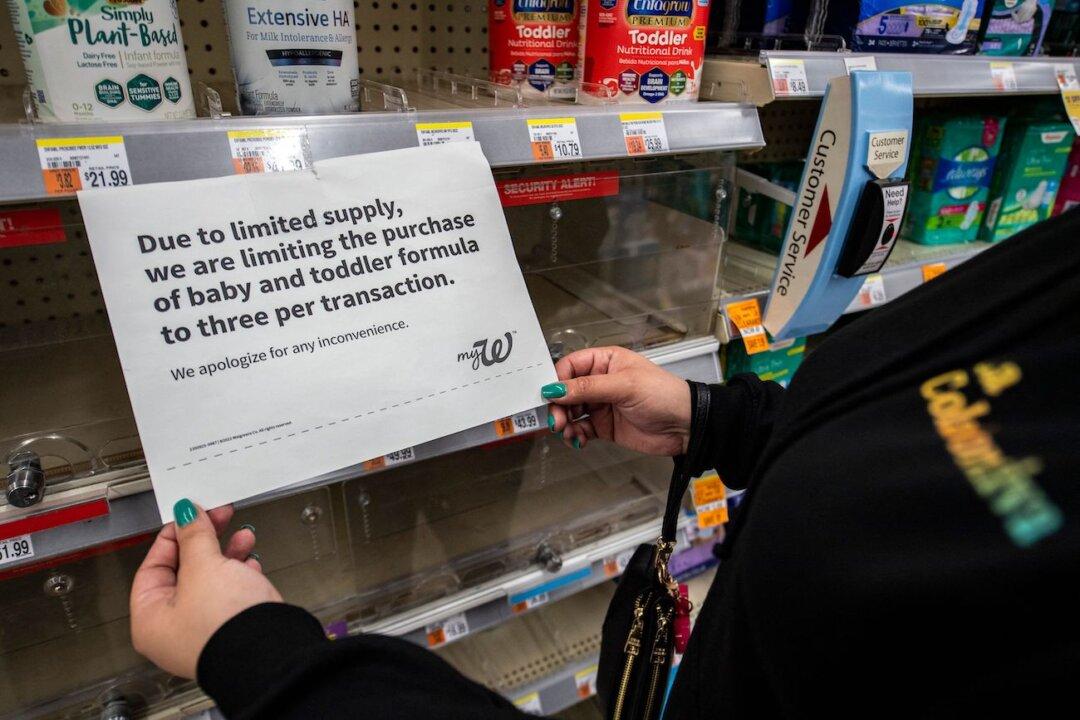The Federal Trade Commission (FTC) on Tuesday launched an inquiry into the ongoing shortage of baby formula in the United States.
In a statement, the FTC said the inquiry seeks information on the “nature and prevalence of any deceptive, fraudulent, or otherwise unfair business practices aimed at taking advantage of families during this shortage.”




